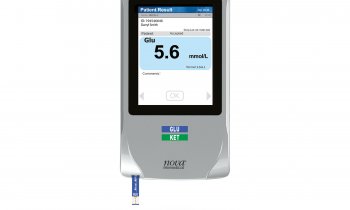Common diabetes drug could prevent hemorrhage and fatal blood loss
A new study, published today in the British Journal of Pharmacology, by scientists from Royal Holloway, University of London, St George's, University of London and University of Surrey have identified that a drug related to commonly used diabetes treatments provides protection against terminal blood loss.

Massive blood loss often leads to death, and when blood transfusions are unavailable, drugs are currently being tested that can keep people alive until they get to hospital. Understanding how these drugs work, and finding improved drugs, has up to now proved difficult. But the latest research has uncovered the way the diabetes drug can protect against changes occurring at a cellular level during severe blood loss.
Prof. Robin Williams from the School of Biological Sciences at Royal Holloway explains: "Our study provides strong evidence that compounds related to the treatment of diabetes could be used to protect against death induced by massive blood loss and save many lives.
"We began looking at a widely used treatment for epilepsy and bipolar disorder, valproic acid, that has been shown to protect against terminal blood loss. By identifying how valproic acid works, we have been able to find more potent drugs, including compounds of the thiazolidinedione class of drugs that are used as hypoglycaemic treatments for diabetes."
Approximately 40% of early human deaths due to trauma are caused by haemorrhage and resulting shock and 62% of these deaths occur in the first four hours. Therefore timely management of this pathological state is central to saving lives. The study has focussed on identifying treatments that are likely to protect against this shock, over the critical four hours post incident.
Source: Royal Holloway, University of London
02.09.2015











